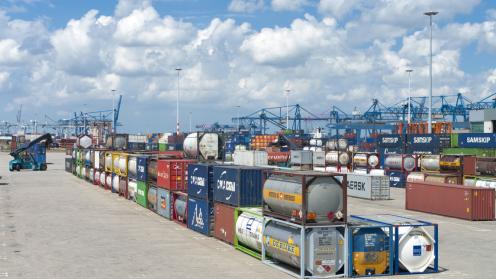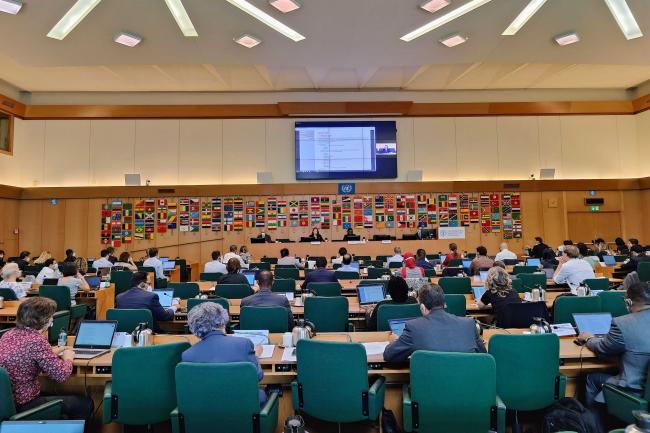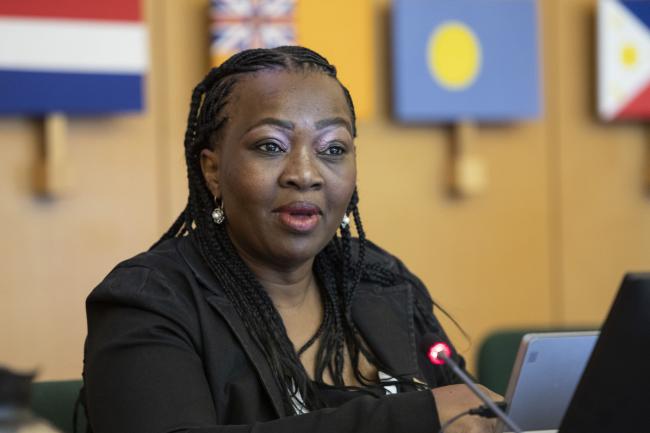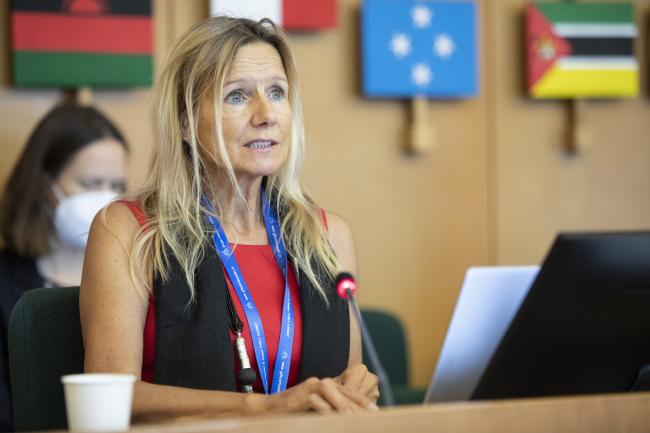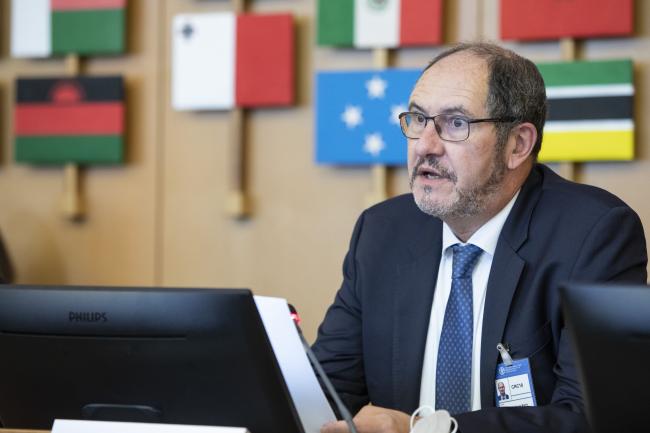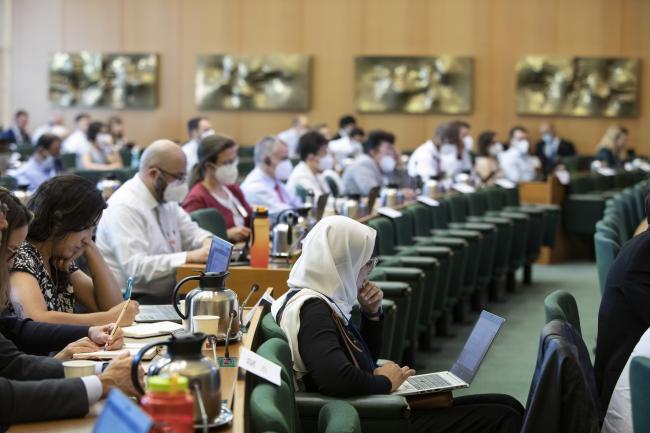With the aim of addressing 12 chemicals by the end of the week, participants at the first in-person meeting of the Chemical Review Committee (CRC-18) since 2019 opened in Rome on Monday by considering draft decision guidance documents (DGDs) for listing two chemicals for the Convention's Prior Informed Consent (PIC) procedure, and reviewed notifications of final regulatory action (FRA) for three other chemicals. The Committee formed two contact groups to further discuss FRAs submitted by Mozambique on two chemicals.
In her opening remarks, Chair Noluzuko Gwayi told members they had a “mammoth task” before them, so she urged them to be very efficient with Committee time without compromising the quality of its work.
Christine Fuell, Food and Agriculture Organization of the United Nations (FAO) part of the Rotterdam Convention Secretariat, highlighted the USD 1.5 million in technical assistance managed by FAO to help parties comply with the Convention. She also underscored the importance of CRC work by citing a recent study showing that 64% of global agricultural land is at risk of pesticide pollution, and 30% is at high risk of such pollution.
Carlos Martin-Novella, Deputy Executive Secretary, BRS Secretariat, called the high CRC workload "a testament to the importance of your work" and stressed the importance of decisions based on sound science, noting that the fifth UN Environment Assembly has mandated the creation of a chemicals and waste science-policy panel that will assist future work on chemicals in this regard.
The Committee considered Draft DGDs for the pesticides iprodione and terbufos, which if agreed would recommend to the Rotterdam Convention Conference of Parties that they list them for the Convention's PIC procedure for trade shipments involving these chemicals. After suggestions were made to update some data and references in both DGDs, the chairs and drafters of the relevant drafting groups were tasked with revising the DGDs so the Committee could consider them later in the week.
The Committee considered task group reports on the FRAs for chlorfenvinphos, methidathion and carbon tetrachloride. On carbon tetrachloride, they agreed that a FRA from Ecuador did not meet all the Convention criteria, so no further action is warranted on this chemical at this time.
On chlorfenvinphos, the Committee considered a task group's conclusions on FRAs from Norway, Turkey and Mozambique. Members agreed with the task force that reviewed the FRAs that Norway's FRA met all Convention criteria but Turkey's did not; they decided to refer Mozambique's FRA to a contact group for further deliberation.
On methidathion, the Committee considered a task group report on FRAs from Turkey and Mozambique. They concluded that Turkey’s FRA did not meet all Convention criteria but referred Mozambique's FRA to a contact groups for further deliberation.
After plenary adjourned in the afternoon, a contact group discussed three points of possible concern with Mozambique's FRA on chlorfenvinphos, namely Mozambique's classification of the pesticide as "near to" World Health Organization (WHO) classification as a highly hazardous pesticide, the primary registered use as a veterinary product, and the import data. All three issues were clarified to the satisfaction of members, but one observer country asked that its dissent be noted in the contact group report. The group will leave to the plenary the decision whether to draft a rationale for accepting the FRA as part of the basis for a DGD.
A second contact group met in the evening to examine outstanding concerns regarding Mozambique's FRA on methidathion.
To receive free coverage of global environmental events delivered to your inbox, subscribe to the ENB Update newsletter.
